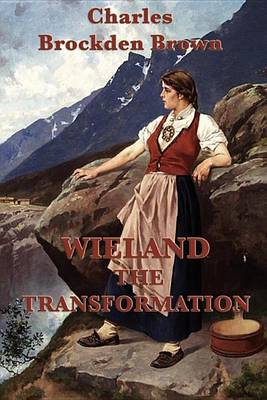Reviewed by Briana @ Pages Unbound on
Wieland may be of interest to students of early American literature or of Gothic novels, but I am going to go out on a limb (actually, forget that; it probably isn’t a risk) and say that the book does not have a lot of mass market appeal. Even avid classics fans may find it a bit dry.
As is typical with much early American writing, Wieland is lacking the type of strong, fast-paced plot that we often associate with good modern literature. While reading, I tried to keep in mind that Brown likely did not intend excitement as one of his primary goals of the book—even if his choosing to write a novel in the Gothic genre implies he was aiming to include at least a little suspenseful creepiness. The problem is that 1) the book really does drag, as any “action” scenes are separated by lengthy chunks of narrator commentary, 2) the existing plot is disjointed, as Brown seem to have changed his mind about the direction of the novel , and 3) the themes presented in the book are not quite thoughtful enough to compensate for how slow the story is. So, Wieland does not quite succeed as either entertainment or intellectual fare.
The introduction of the Oxford World’s Classic edition (the version I read), explains that Wieland includes themes of power, religious fanaticism, and gender roles. All are, in fact, included, but they are not presented in a subtle enough manner that I, personally, had any great urge to pursue them. (For instance, I would never be inspired to write a literature essay about this book.)
Clara, our narrator, gives long philosophical speeches on gender and sexuality. Her views on the matter often tend to the conservative (she needs protection, needs to be pure and have a good reputation, etc.), but her actions occasionally show her to be stronger and more courageous than some would believe of a woman. Similarly, Carwin, a visitor to the Wielands’ home, rambles on for a while about power and its corruptive nature. Readers are essentially asked to decide whether they agree or disagree with the views presented, rather than being left to form entirely original opinions.
The religious fanaticism (primarily embodied in Theodore) is less explicitly expounded upon, which may make it the most interesting for readers to ponder. However, the disjointed nature of the plot means that Brown gives readers either no information on some important aspects of Theodore Wieland’s character, or he gives conflicting information. The story’s biggest mystery is why Wieland commits murder, but, again, readers are essentially given three explanations from which to choose instead of being left to their own devices.
Frankly, I did not love Wieland. I would not discourage anyone from reading it from an academic standpoint, even if I personally did not find it fit my scholarly interests. I would, however, not recommend it to those who primarily read classics for pleasure. The plot is either slow or nonsensical, the characters are generally flat with one or two defining characteristics, and the themes are so explicitly presented (in many, if not all cases) that they do not leave as much room for interpretation as some might wish. The book is not really fun and it is not really complex. There are so many classics that are, that I recommend finding them and passing on this.
Reading updates
- Started reading
- 26 February, 2014: Finished reading
- 26 February, 2014: Reviewed
